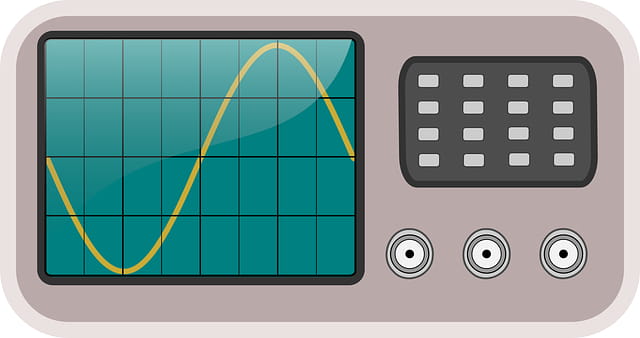MDO3014
Description: Mixed Domain Oscilloscope
| Manufacturer | Tektronix Inc |
|---|---|
| Series | MDO3000 |
| Part Number | MDO3014 |
Need to purchase this item?

Tektronix MDO3014 Mixed Domain Oscilloscope
The MDO3014 Mixed Domain Oscilloscope designed by Tektronix is a high performing 6-in-1 oscilloscope that includes: an arbitrary function generator, integrated spectrum analyzer, protocol analyzer, logic analyzer, and digital voltmeter/counter. This model is suitable for applications such as education, EMI troubleshooting, and design and debug. The MDO3014 can be customized and upgraded at any time, according to the user’s specifications.
One of the features of the MDO3014 is Wave Inspector, which allows the user to navigate waveforms and perform automated searches, and spot events of interest quickly. Another feature of this model are the integrated analysis tools such as waveform and screen- based cursors, advanced waveform math, FFT assessment, automated measurements, waveform histograms, and trend plots for visually deciding how a measurement is progressing. These tools allow the user to confirm that their oscilloscope is performing well and that it is meeting the project’s design goals. Automated measurement readouts allow the user to look at waveform characteristics as statistics, so they can repeat them later on.
Since the Tektronix MDO3014 has such a fast waveform capture rate, this model gives the user a similar display to an analog oscilloscope, but instead has more detail, along with the added advantages of digital oscilloscopes. Many video engineers prefer analog oscilloscopes, but the MDO3014 is perfect for video applications because of the following features: IRE and mV graticules, video polarity, HDTV and custom video triggers, holdoff by fields, and an Autoset which can spot video signals. A video picture mode is also available to let the user see the picture of the video signal they are watching.
| MDO3014 | Technical Specifications & Electrical Characteristics Datasheet |
|---|---|
| Analog channels | 4 |
| Analog channel bandwidth | 100 MHz |
| Rise time (typical, calculated) | 4 ns |
| (10 mV/div setting with 50 Ω input termination) | |
| Sample rate (1 ch) | 2.5 GS/s |
| Sample rate (2 ch) | 2.5 GS/s |
| Sample rate (4 ch) | 2.5 GS/s |
| Record length (1 ch) | 10 M |
| Record length (2 ch) | 10 M |
| Record length (4 ch) | 10 M |
| Digital channels with MDO3MSO option | 16 |
| Arbitrary Function Generator outputs with MDO3AFG option | 1 |
| Spectrum analyzer channels | 1 |
| Standard spectrum analyzer frequency range | 9 kHz - 100 MHz |
| Optional spectrum analyzer frequency range with MDO3SA option | 9 kHz - 3 GHz |
| High-level description | Integrated Oscilloscope with Six Instruments in One |
| Commonly used for | Design and Debug, EMI Troubleshooting, Education |
| Analog Bandwidth | 100 MHz, 200 MHz, 350 MHz, 500 MHz, 1 GHz |
| Maximum Analog Sample Rate | 5 GS/s |
| Analog Channels | 2, 4 |
| Record Length | 10 M |
| Digital Channels | (Optional) 16 |
| Spectrum Analyzer Channel | (Standard) 9 kHz - Analog BW (Optional) 9 kHz - 3 GHz |
| AFG | Up to 50 MHz with 13 functions and arbitrary waveform generation |
| Serial Bus Analysis | Trigger & Decode: I 2 C, SPI, RS-232/422/485/UART, CAN, CAN FD, LIN, FlexRay, USB2.0, MIL-STD-1553, Audio |
| Advanced Analysis | Power, Limit/Mask, Video |
| Standard Probing | 200 MHz, 3.9 pF 500 MHz, 3.9 pF or 1 GHz, 3.9 pF |
Tektronix MDO3014 Mixed Domain Oscilloscope- FAQ:
Question:
What are the maximum power draw ratings for the MDO3014 TEKVPI probes?
Answer:
There is a max power draw of 25 Watts for the MDO3014.
Question:
Will the DVM work on the MDO3014 oscilloscope with a probe?
Answer:
Yes, the DVM works through the analog inputs, so a probe can be used.
Question:
Can MSO3000/DPO3000 scopes be upgraded to an MDO3000?
Answer:
No, it is not possible to go from an existing MSO/DPO3000 to a new MDO3000.
Question:
If I upgrade my MDO3014 bandwidth, do I receive probes with a higher bandwidth?
Answer:
Probes with a higher bandwidth will only be given if the bandwidth of the upgraded scope exceeds the bandwidth of the original supplied probes.
Question:
What is the cooling clearance necessary for the MDO3014?
Answer:
The necessary cooling clearance is 2 inches on the back and left side of the oscilloscope.